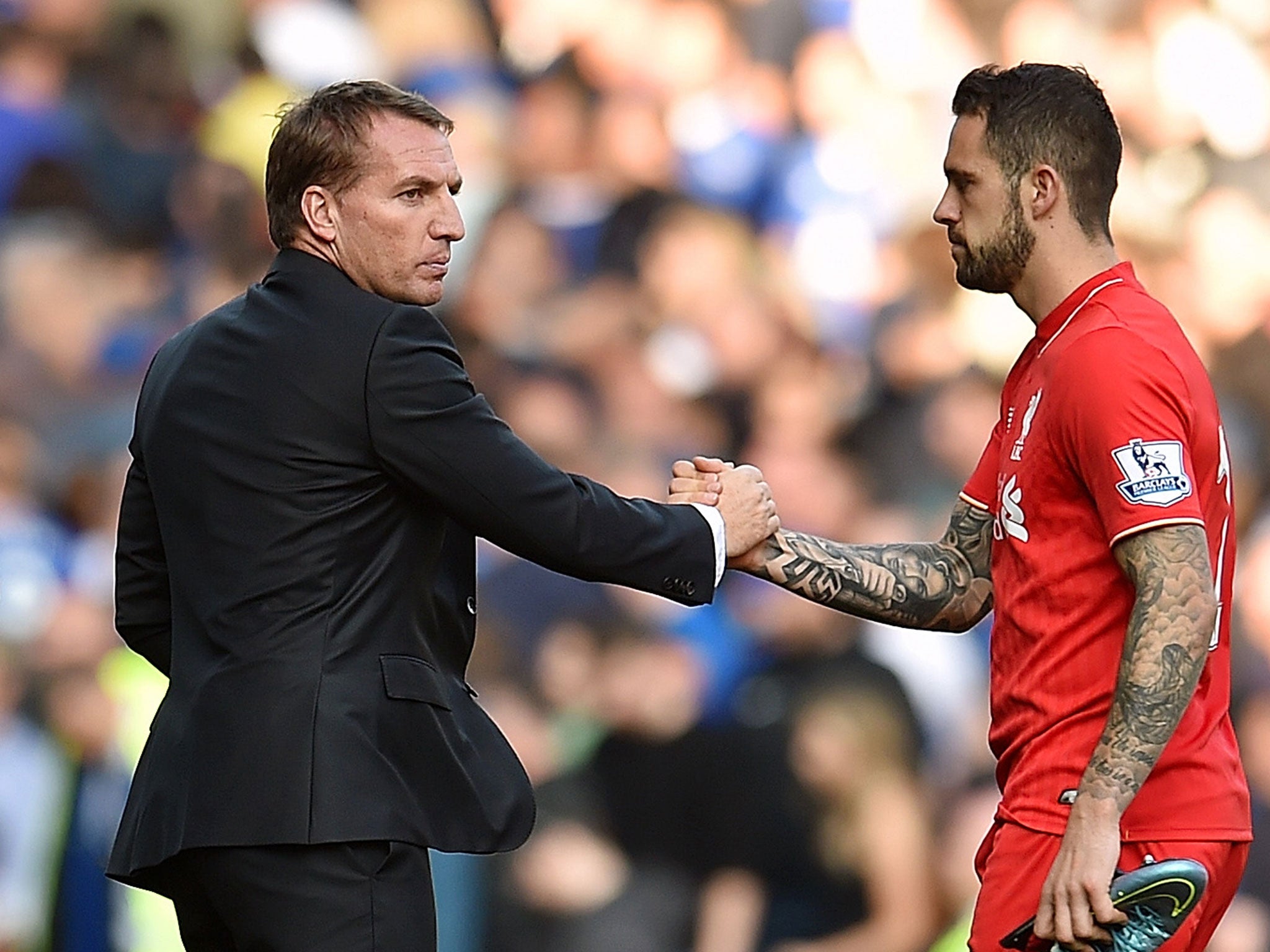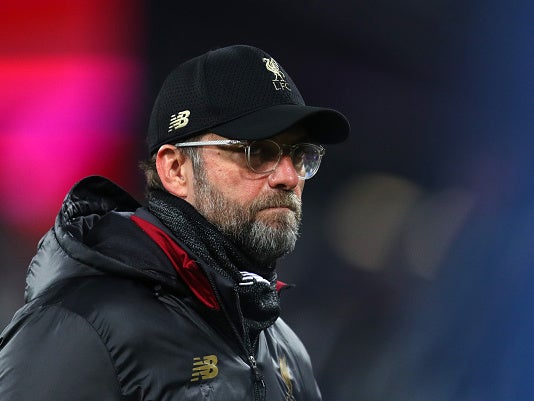Why Liverpool should not worry about their Premier League title race lead narrowing
Premier League champions are not made by avoiding patches of poor form in the second half of the season, but how they bounce back to answer their critics when these runs inevitably arise

In the search for reassurance or warning after a week where a potential seven-point gap will reduce to three – should Liverpool win their game in hand against Bournemouth on Saturday – an article such as this one might lead in on a haunting story from a year when it nearly went their way only for something to happen which neatly illustrated a flaw that lay hidden.
Squad depth, it could be argued, might prove to be that flaw – perhaps as it may have done in 2014 – because the team which put Liverpool top has not been the one trying to keep it there over the last few weeks. The calculated gamble in allowing Nathaniel Clyne to leave on loan has narrowed Jurgen Klopp’s options, not just in the position of right back but midfield as well, since James Milner and Jordan Henderson have been required to function in roles that do not suit them best and without either of their presence elsewhere, Liverpool have missed thrust at certain moments and perhaps a touch of organisation.
Generous observers would cite luck here, considering the three injuries across two defensive positions at once, though given that both Dejan Lovren and Joel Matip have never played more than 30 league games in any of their six full seasons at the club, this might have been anticipated, especially when you weigh in Joe Gomez’s record in being available since joining in 2015, an outstanding young footballer though he is.
Still, there is a greater challenge in attempting to calculate what two unexpected draws might mean for Liverpool in early February, largely because this campaign has been the best in terms of points and time spent at the top since 1990, the last year they won the title.
An understanding of history is necessary to explain the environment Klopp is operating in. Liverpool currently have a twelve-point advantage over the side managed by Brendan Rodgers that five years ago today beat Arsenal 5-1 at Anfield, a result which allowed Chelsea to replace Arsene Wenger’s team at the table’s summit, which Liverpool still trailed by six points. The manner of the victory gave Liverpool as a whole the belief the club could go on and compete for the title again, and though they would later go top themselves for five weeks, for ten days, at least one rival below them had more games left to play and Liverpool’s destiny was not in their own hands.
Liverpool have led the table longer this season already than they did in 2013/14 and given that it has happened earlier than it did then, the players will either have a better understanding now of what it might take to remain there should there be another opportunity to open up a gap, or alternatively carry some awkward memories with them.
While Virgil van Dijk asked for calm and trust following the draw with Leicester City, Mark Noble spoke after West Ham’s result against Liverpool on Monday night about the week before when, from a position on his couch in Essex, he could sense the nervousness inside Anfield.
If the atmosphere has the potential to propel Liverpool teams towards the unimaginable and is a part of the narrative when anything spectacular happens, it also has the capability to bury them in the pursuit of the impossible.
This is not a crowd with the education of those in the past, particularly when the discussion is around the trophy supporters want the most. There is part estimation here because if the second half of any campaign represents what happens between 1 January and the end of May, there have been 560 weeks since the start of the 1990/91 season and Liverpool have been top when the pressure is really on for just 17 of those weeks, eight of which were in 1991.
Pretty much from the moment Kenny Dalglish made the surprise decision to resign following a 4-4 draw with Everton in the FA Cup 28 years ago this month, Liverpool ceased being a club that never mind knew how to handle being top, ceased being there very much at all during the run in from New Years’ Day. Two days’ after Dalglish went, Liverpool slipped to second after a 3-1 defeat at Luton Town and though they would go first again after a 7-1 thrashing of Derby County, Arsenal were convincing champions that year.

Within two seasons, Liverpool had relegation concerns come March. A 2-1 home loss to Manchester United placed Graeme Souness’s side just three points above the drop zone. They would not be top in the second half of any season again until 1997 when Jamie Carragher scored on his full-debut against Aston Villa, though it was a position they held for just twenty-four hours.
The only sustained periods between then and 2014 were in 2002 (four weeks) and 2009 (three weeks). If the burden of wanting something to happen so much can crush hopes, then it is compounded by a lack of experience.
This was never this mood or yearning, of course, when Liverpool went twenty years without winning the European Cup. Gerard Houllier’s efforts to modernise Melwood and change attitudes had brought numerous trophies in the years before and in 2005 there simply wasn’t the expectation on Liverpool to win the Champions League. (Liverpool’s last trophy was in 2012, remember, and though memories like Kiev have been created, the tag of being a losing finalist does not rest comfortably with any Liverpudlian if he or she is totally honest with themselves).
The sense of anticipation now is understandable considering the club spent more money than ever last summer and has broken two world records to solve two outstanding problem positions, though only one of those records lasted for a fortnight.
Maybe some things said by supporters and their rivals on the Internet are taken too seriously because, well, supporters have always tried to wind up other supporters and if Manchester City think “Jurgen is cracking up,” it has always, anyway, remained his job to prove that he isn’t.

One of the more accurate Tweets this week reflected on the last ten games, reminding that City have dropped 12 points and Liverpool have dropped just seven, a run which has seen City lose to three teams outside of the top six while Liverpool have drawn against two of them. “Yet Liverpool are perceived as the ones bottling it and blowing it,” was the message.
What matters most is not what has happened but what happens. Sometimes there is little point in making comparisons because the challenge becomes different and the context changes but if there is one consistent theme is to be gleaned from the past, it is title winners do wobble at least once if not twice. City did not last season but they already have this season and so, it might happen again. And it might happen to Liverpool as well. There is a chance this wobble continues against Bournemouth.
Glory tends to gloss over earlier struggles and nowhere more so should this be remembered than in Manchester. When United ended their 26-year wait for a title in 1993, it only came after a dreadful March where a defeat at Oldham preceded three successive draws. City’s wait was even longer, of course, and it seemed like it would stretch into a forty-fifth year when they could not beat Stoke, Sunderland and Arsenal in successive fixtures, the last of which was in the first week of April. For Liverpool and their supporters, indeed, this should be remembered.
Join our commenting forum
Join thought-provoking conversations, follow other Independent readers and see their replies
Comments